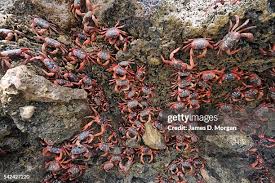The Allure of Casablanca: A City of History and Culture
Introduction
Casablanca, Morocco’s largest city and economic powerhouse, holds a unique position in both historical and modern contexts. Positioned along the Atlantic coast, this vibrant city is a blend of tradition and innovation, making it a focal point for tourism, commerce, and culture in North Africa. Its relevance has soared in recent years, especially as international travel resumes post-pandemic, drawing visitors eager to explore its rich tapestry of experiences.
The Historical Significance of Casablanca
The history of Casablanca is both rich and complex. Originally founded as a Berber settlement, the city was established by the Phoenicians and later became part of the Roman Empire. However, it was in the 20th century, particularly during the French colonial period, that Casablanca saw significant development, transforming it into the modern metropolis it is today. Notably, the city gained global fame through the classic 1942 film “Casablanca,” which depicted a tense atmosphere during World War II, adding layers to its historical narrative.
Modern Casablanca: A Hub of Culture and Economy
Today, Casablanca is not just a city of historical intrigue but also a thriving economic hub. Known for its bustling port—the largest in Africa—Casablanca plays a critical role in the trade dynamics of the region. The city’s economy is diverse, with key industries including manufacturing, technology, and tourism. Major businesses and banks have set up in the city, contributing to its status as the financial capital of Morocco.
Culturally, Casablanca is a melting pot that showcases numerous artistic expressions, from its vibrant street art to contemporary music scenes. The Hassan II Mosque, one of the largest in the world, stands as a testament to Morocco’s rich Islamic heritage, attracting thousands of visitors each year. Moreover, the city’s various museums and galleries provide insights into Moroccan history, art, and culture.
Tourism and Future Prospects
Tourism plays a significant role in Casablanca’s economy. Post-pandemic recovery efforts have seen a strong push to welcome international tourists back. Travel operators are now offering enhanced experiences in areas like culinary tourism, historical tours, and cultural festivities. The government’s focus on infrastructure development, including expanding the airport and enhancing public transport, is further expected to bolster the tourism sector.
Conclusion
As Casablanca continues to evolve, it remains a key player on the global stage, offering a unique blend of heritage and modernity that attracts tourists and businesses alike. Its historical treasures and dynamic economy create a promising future, with potential for growth in various sectors. For readers, visiting Casablanca not only provides an opportunity to explore its distinct charm but also to engage with a city that is rich in stories, culture, and opportunities.









